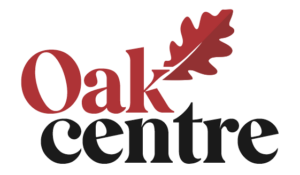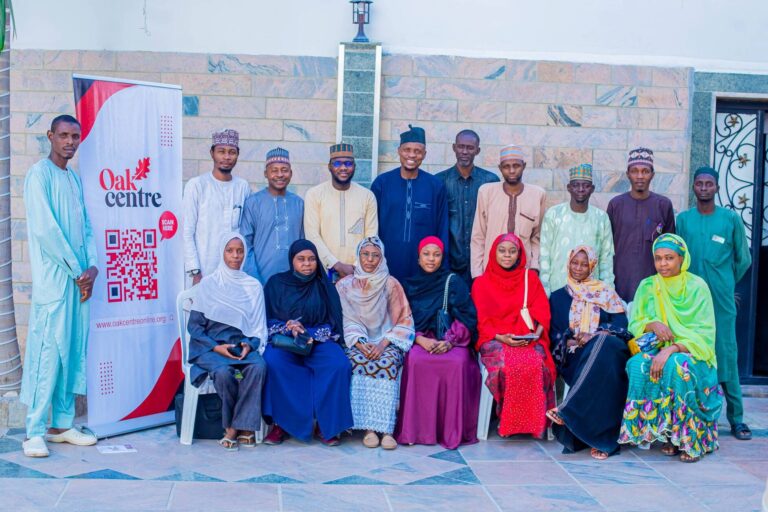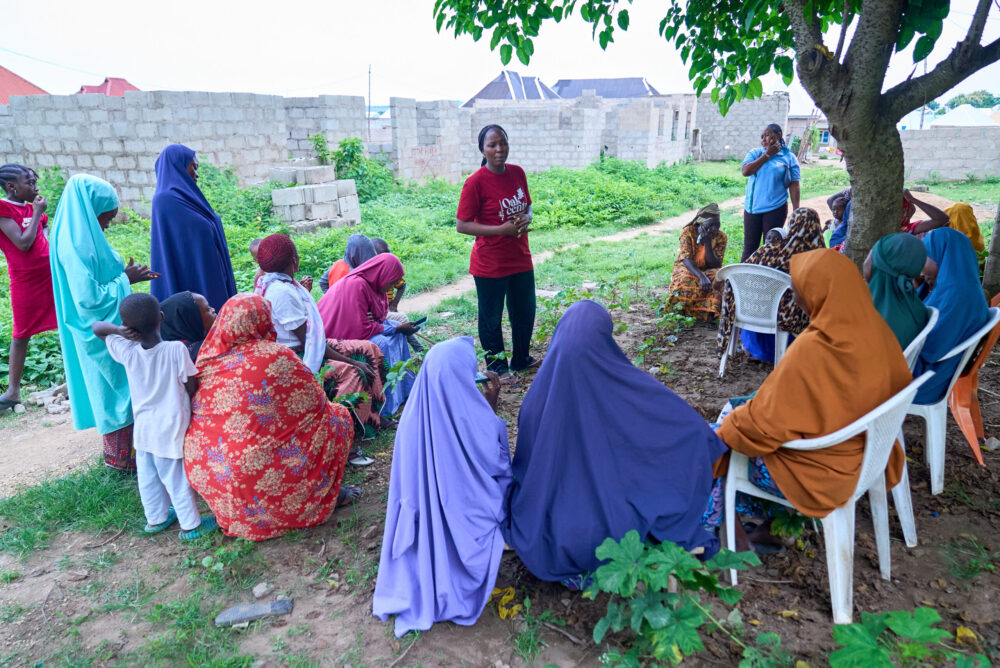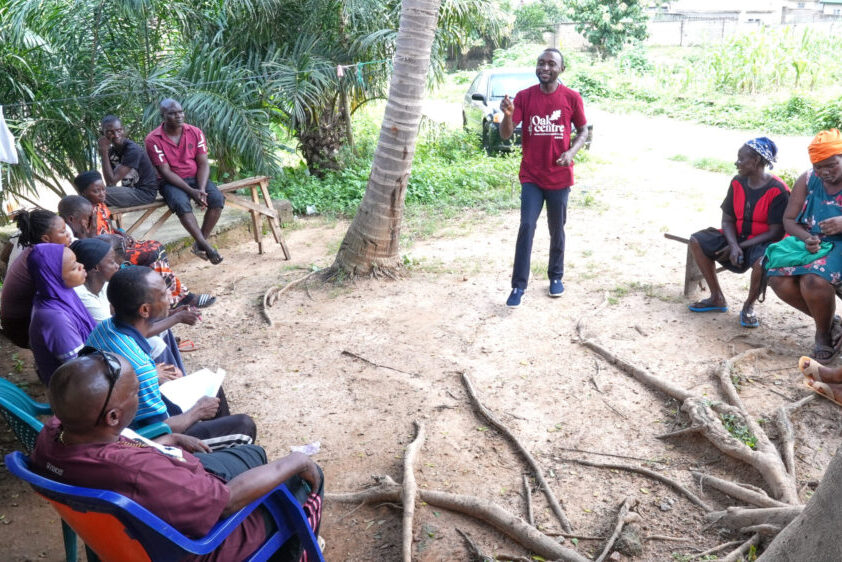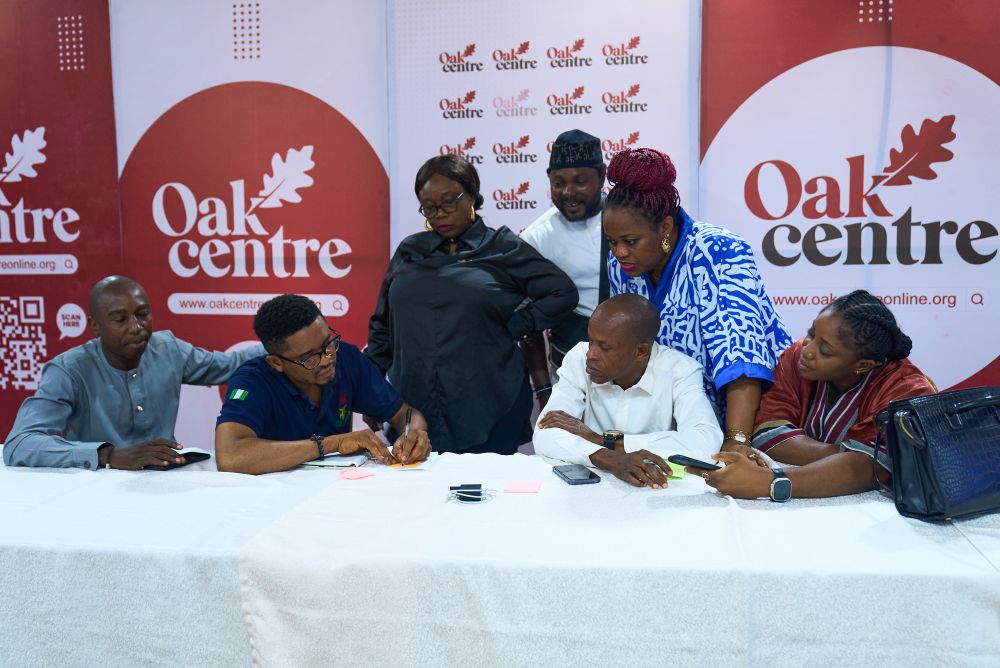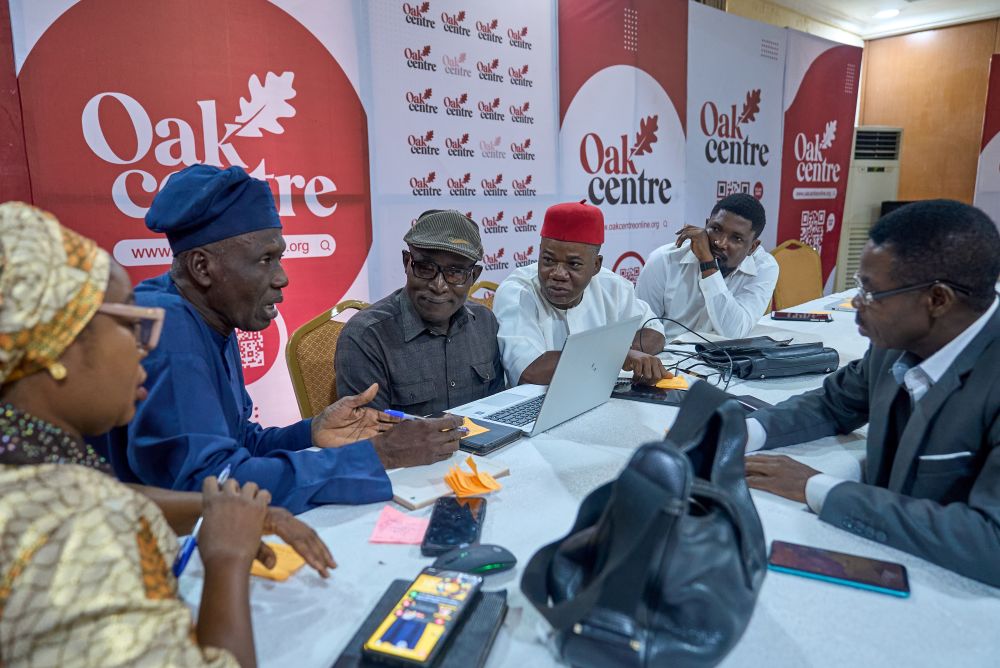The Oak Centre has successfully concluded a capacity-building workshop for the fifth cohort of civil society organisations (CSOs), held in Kano, with a focus on equipping participants with practical tools to counter disinformation and reinforce public trust in fragile and transitional settings.
The intensive training brought together representatives from diverse CSOs working in areas such as human rights, peacebuilding, governance, and humanitarian response. Over the course of several days, participants engaged in expert-led sessions and hands-on exercises covering fact-checking, digital verification, open-source intelligence (OSINT), and counter-narrative strategies.
The Kano training forms part of Oak Centre’s broader initiative to strengthen democratic accountability and public resilience by building the capacity of frontline civil society actors across the country.
Speaking during the closing session, Korede Ogundiminegha, Capacity Building Manager at Oak Centre, emphasised the strategic importance of the initiative in northern Nigeria and similar fragile contexts.
“Misinformation spreads faster where public institutions are weak. CSOs are often the first responders in fragile contexts — our goal is to equip them to also be first defenders of truth,” he said.
“Our decision to host the 5th cohort in Kano was both strategic and symbolic,” Ogundiminegha explained. “As one of the most populous states in northern Nigeria and a key socio-political hub, Kano sits at the crossroads of influence — where grassroots narratives, community activism, and political discourse converge. The state has also faced challenges common to many fragile settings: complex security dynamics, information gaps, and a high reliance on informal sources of communication. By bringing this training to Kano, we wanted to strengthen the capacity of civil society actors operating at the heart of these dynamics. The goal is clear: build resilience from the ground up, starting with those closest to the communities they serve.”
Participants explored the unique challenges that misinformation and disinformation pose in conflict-sensitive environments, particularly where trust in institutions is low and rumours often fill the void left by poor communication. Practical sessions focused on how CSOs can apply verification tools in their advocacy work, monitor local narratives, and promote evidence-based information.
“This initiative is not just about digital skills,” Ogundiminegha added. “It’s about building an ecosystem of informed, ethical, and resilient civil society actors who can challenge falsehoods and champion evidence-based advocacy.”
The training in Kano was tailored to reflect the realities faced by grassroots organisations operating in northern Nigeria, where disinformation often exacerbates intercommunal tensions and hinders humanitarian access. Participants were encouraged to develop context-specific strategies for engaging with local communities, especially marginalised groups vulnerable to manipulation and fear-based narratives.
“Disinformation targets public opinion. Civil society shapes it,” Ogundiminegha said. “That’s why we’re investing in CSOs — because empowered voices can help rebuild public trust, one verified fact at a time.”
As part of the post-training roadmap, participants are expected to embed fact-checking tools into their organisational workflows, build alliances to monitor emerging narratives, and engage in public education efforts within their communities.
